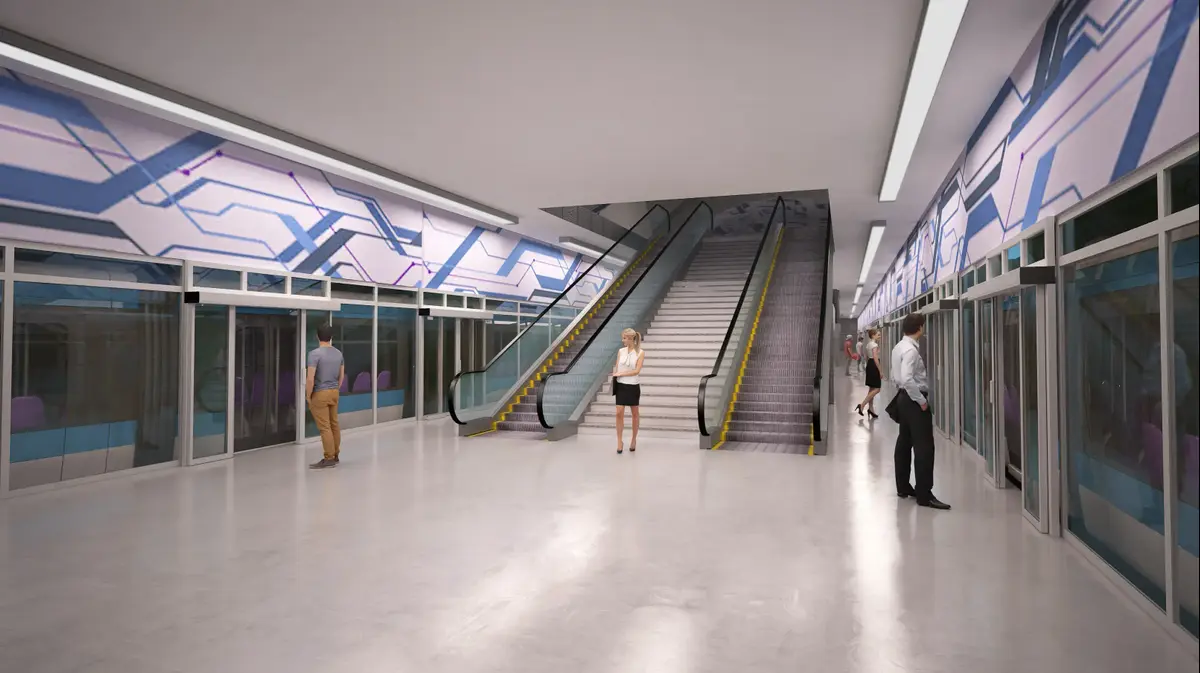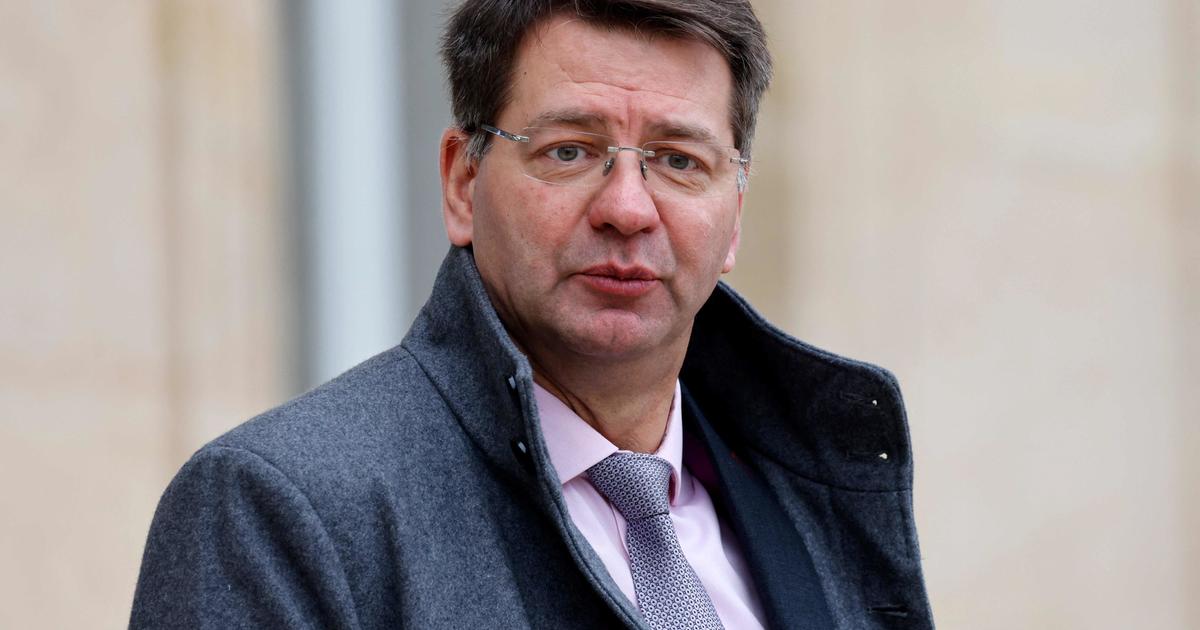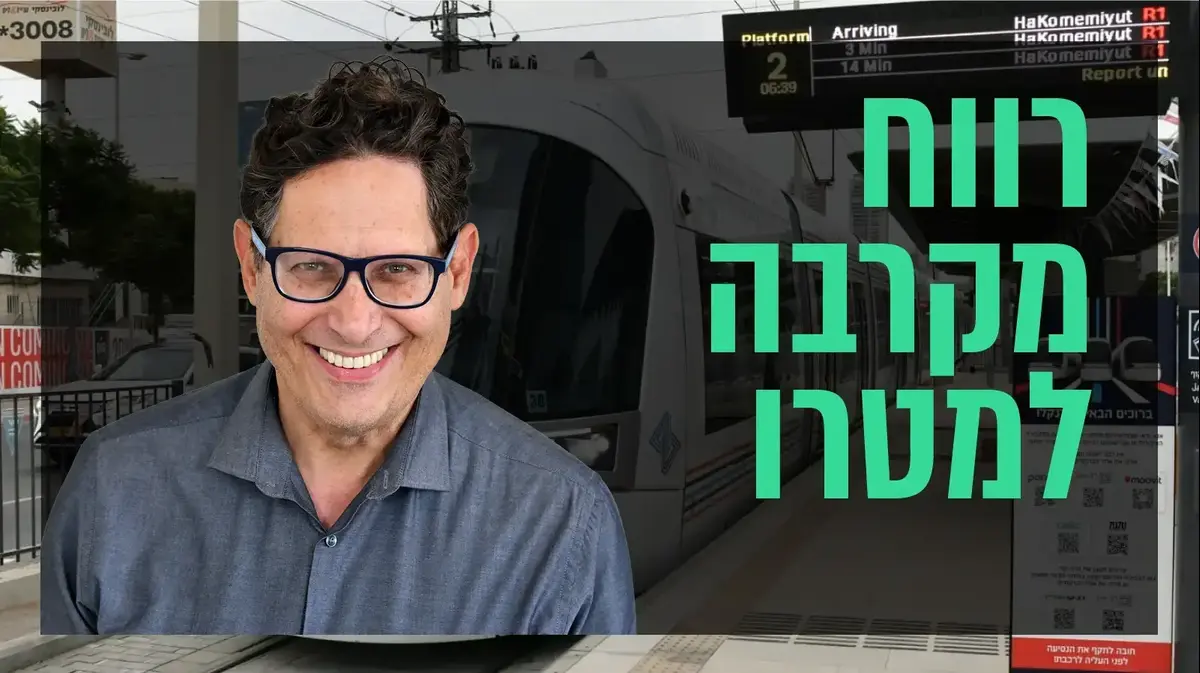The metro did not travel a meter, the politicians had already made a turn on it
The Metro Law is the basis that was supposed to make the largest transportation project in Israel one that will progress at a very fast pace.
On the facts and the need everyone agrees, so why is he thrown under the wheels?
Keenan Cohen
28/06/2022
Tuesday, 28 June 2022, 11:36 Updated: 22:14
Share on Facebook
Share on WhatsApp
Share on Twitter
Share on Email
Share on general
Comments
Comments
In the video: Naftali Bennett and Yair Lapid's statement on going to the polls (Contact)
The rejection of the Metro Law as part of the dispute between the coalition and the opposition over the dissolution of the Knesset is unfortunately not a substantive dispute, but another sacrifice that citizens pay for the crooked way in which public transport policy and the infrastructure that serves it are conducted.
The subway project, which is supposed to serve tens of millions of passengers a month and will appoint three lines that will inherit the entire Gush Dan tunnel, is expected to cost about NIS 150 billion.
The huge amount, the complexity of the project, its touch on areas of infrastructure that go far beyond tunnel mining, the crossing of a large number of authorities and municipalities and all the huge envelope around it - create a series of huge challenges around its construction.
Simulation of the metro project (Photo: Official website, NATA)
To simplify and expedite these processes and as part of the lessons learned from the light rail project, it was decided at a relatively early stage to produce a “fast track” to promote this venture through dedicated legislation.
The purpose of this legislation is to significantly facilitate the pace of work, to regulate the organizational structure in it, the division of roles and responsibilities between the Ministries of Transport and Finance.
In addition to creating coordination between the various bodies that take part in the infrastructure that will serve it (electricity, water, fire and rescue and more), and accepting to deal with every aspect of the land under which the lines will pass and include improvement levies, expropriations, impact on renewal and urban planning around the lines and more.
The legislative process was supposed to be the concluding leg of a process that had already begun in the Arrangements Act, but where the funding clauses and taxation policies were addressed.
More on Walla!
The Metro Law is not included in the legislation that will go up until the dissolution of the Knesset: "Surrender to the opposition on the backs of the public"
To the full article
Surrender to the opposition?
Michaeli (Photo: Flash 90, Olivia Fitoussi)
The imposition of the Likud party's veto yesterday on the arrival of the Metro Law for a second and third reading comes even though there is no substantive dispute over the necessity of the entire project and the law is bound by this reality.
The agreement on it crosses parties and political positions, from the Likud to the joint list.
The official reasons?
The opposition's desire to prevent even declaratory achievements from the current government before the dissolution of the current Knesset.
Another reason is a dispute between the opposition and the coalition over the promotion of other laws that are important for the first time in terms of "neither I nor you will have."
Transport Minister Merav Michaeli, whose metro project is one of the flagship projects of her tenure, said yesterday that: "We are at a critical moment for the future of the State of Israel. If the metro law is not passed We were stopped from traffic because of petty politics. "
In doing so, it is apparently aimed at members of Yesh Atid who are concentrating their negotiations with the representatives of the opposition on which laws will be promoted and put to a vote before the Knesset is dissolved tomorrow at midnight.
Ostensibly, one would think that if there are consents, the delay is only temporary, a procedure.
However, the practical significance of not passing the law now, and given that the next election campaign is also unlikely to end in a decision and the formation of a government - this may lead to a further delay in the departure of those who are supposed to significantly alleviate the country's ongoing traffic jams.
Metro in numbers
The metro train will include 3 lines (M1, M2, M3)
These lines will pass through 109 stations in total
The stations will be built in 24 local authorities
The length of the tracks will be 150 km in total
About 2 million passengers a day will travel by train
The estimated cost of construction is about NIS 150 billion
Metro lines according to the plan (Photo: PR)
And there is another point, it does not concern national politics but rather local politics and rather it illustrates the necessity of legislation that bypasses the authorities and bureaucracy.
A few weeks ago, the National Planning and Construction Committee approved plans for the main line of the M1 metro, which is to be the first to be built and moved from south to north.
However, not the entire route was approved, but only its southern part, due to the opposition of the municipalities of Raanana and Kfar Saba to the route and the arrangements with the landowners above it.
Although the split makes it possible to start the project shell, it is clear to everyone that this is a problem, since "half metro" can not be paved and as long as no agreements are reached, the approval of the plans of the southern part does not really affect the wider course of the project.
So while the parties' election budgets are rising by a broad and cross-sectoral consensus, the metro that is supposed to cross Gush Dan and allow an alternative to traffic jams is catching on.
news
Political-political
Tags
Metro
Subway
Public Transport















